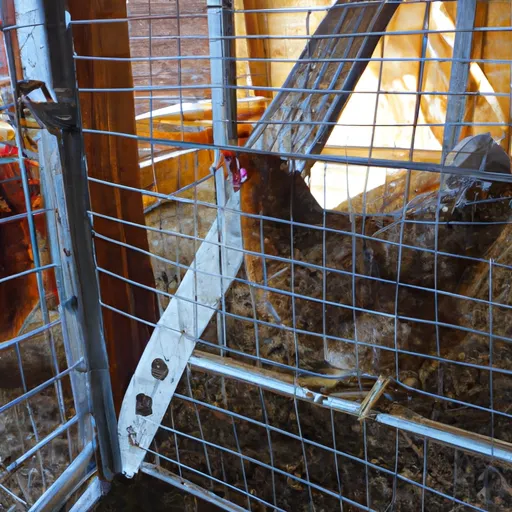Why Custom Chicken Coops are the Best Choice for Your Backyard Flock
Custom chicken coops have become increasingly popular among backyard poultry keepers.
These coops offer a range of benefits that make them an excellent choice for anyone looking to start or expand their flock.
In this article, we’ll explore why custom chicken coops are the best option for your backyard birds.
Introduction to Custom Chicken Coops
A custom-built chicken coop is a structure designed specifically for your flock’s needs.
Unlike prefabricated coops, which may not be suitable for certain breeds or environments, a custom coop can be tailored to meet the unique requirements of your birds.
Whether you want a small coop for a few hens or a larger one for a mixed flock, a custom design ensures that your birds will have plenty of space to roam and thrive.
The Benefits of a Custom-Built Coop
There are several advantages to choosing a custom chicken coop over a prefabricated model:
1. Size and shape – A custom coop can be built to any size or shape, allowing you to create a layout that works best for your flock. This means more space for your birds to move around and exercise.
2. Materials – With a custom coop, you get to choose the materials used in its construction. This allows you to use high-quality, durable materials that will stand up to the elements and last longer than cheaper alternatives.
3. Design features – A custom coop can include a variety of design features that help to improve ventilation, lighting, and temperature control. For example, you might incorporate windows or skylights to provide natural light or add vents to increase airflow.
See also The Ultimate Guide to Backyard Chicken Feeders
4. Personalization – With a custom coop, you can personalize every aspect of the design, from the color scheme to the decorative details. This makes it easy to create a coop that reflects your own style and personality.
Designing Your Dream Coop
When designing your dream coop, there are several factors to consider:
1. Space – How much room do you need? Consider how many birds you plan to house, as well as their individual needs. You’ll also want to think about storage space for feed, bedding, and other supplies.
2. Layout – What kind of layout would work best for your flock? Consider things like nest boxes, perches, and scratch areas, as well as access points for cleaning and maintenance.
3. Materials – Which materials should you use? Think about durability, cost, and ease of installation when selecting materials for your coop.
4. Construction techniques – Are you building your coop yourself, or hiring someone else to do it? If you’re doing it yourself, research different construction methods and tools to ensure a safe and successful build.
Materials and Construction Tips
Once you’ve settled on a design for your custom coop, it’s time to select materials and begin construction. Here are some tips to help you along the way:
1. Foundation – Start by laying down a solid foundation. This could be a concrete slab, pressure-treated wood, or another material that won’t rot or decay over time.
2. Frame – Build a sturdy frame using strong, straight lumber. Make sure all joints are tight and secure, and consider adding additional bracing for added strength.
See also Blue Eggs, Green Pastures: The Benefits of Raising Blue Egg-Laying Chickens on a Small Farm

3. Walls – Use sheet metal, plywood, or other durable materials to construct the walls of your coop. Again, make sure all seams are tight and secure, and consider adding insulation for improved temperature control.
4. Roof – The roof of your coop should be sloped to prevent water buildup, and made from a weatherproof material such as shingles or corrugated metal.
5. Doors and Windows – Install doors and windows that are large enough to allow easy access for cleaning and maintenance, but small enough to prevent predators from entering.
Maintaining Your Custom Coop
Regular maintenance is essential to keeping your custom coop in good condition.
Here are some tips for maintaining your coop:
1. Cleaning – Remove old bedding and debris regularly, and disinfect surfaces with a mild bleach solution to kill germs and bacteria.
2. Ventilation – Keep fresh air flowing through your coop by opening windows and vents during the day, and closing them at night to retain heat.
3. Pest Control – Take steps to prevent rodent infestations, such as setting traps and storing food in sealed containers.
Why Choose a Custom Coop
Choosing a custom chicken coop offers numerous benefits, including increased space, better ventilation, and personalized design options.
By considering your specific needs and preferences, you can create a coop that meets the unique requirements of your backyard flock.
So if you’re ready to take the plunge into backyard poultry keeping, consider investing in a custom chicken coop – you won’t regret it!
